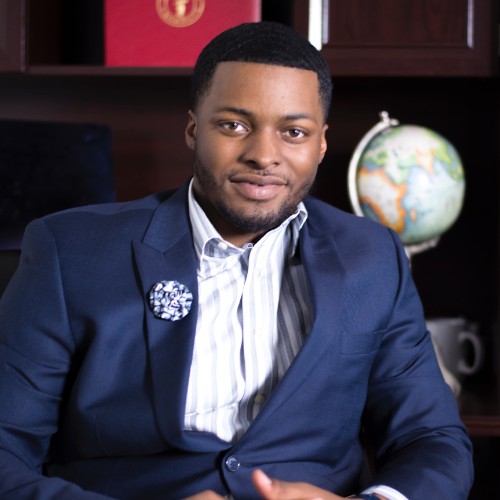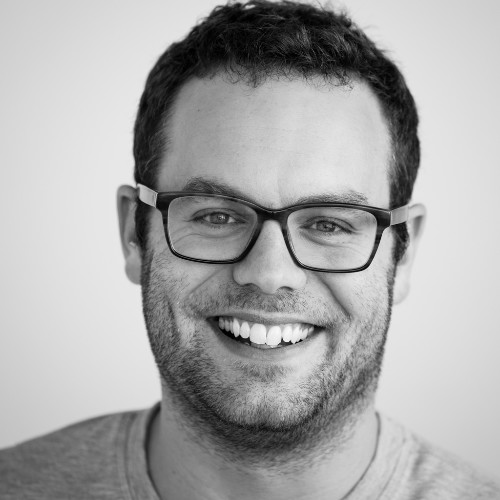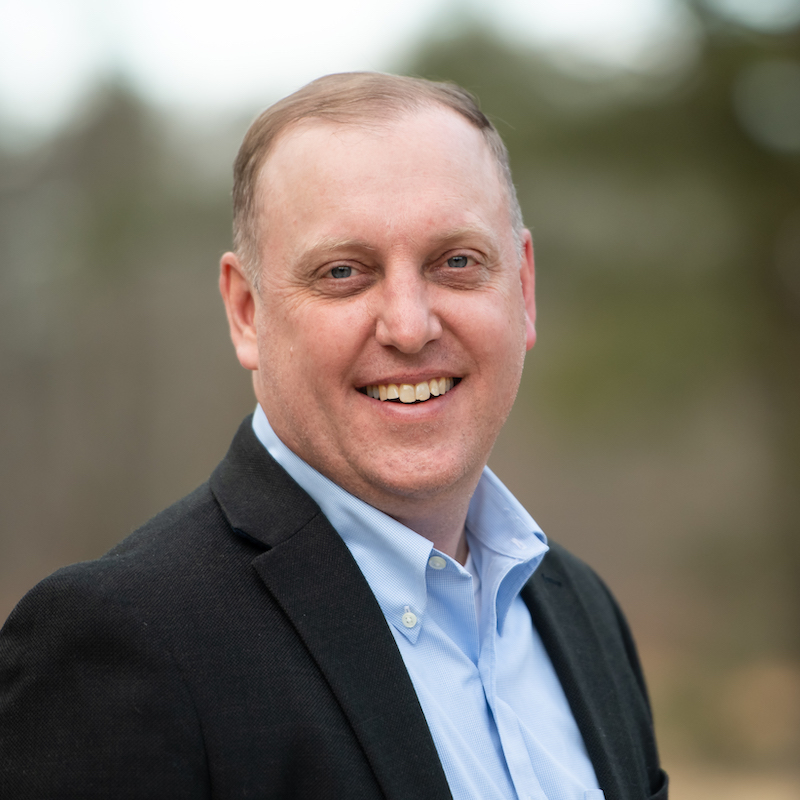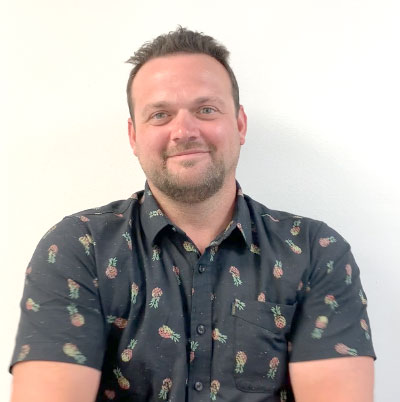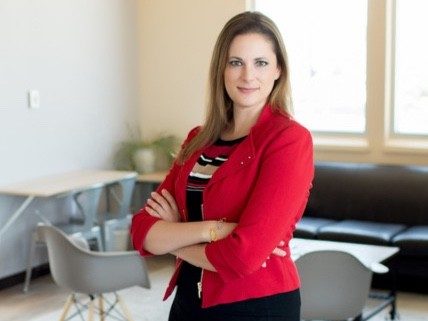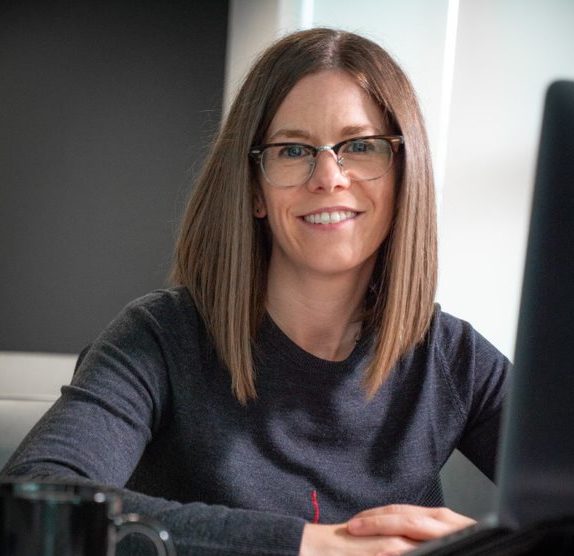What are we talking about?
Bringing the personal back to the digital
Why is being personal in the midst of digital important for the future of work?
As we use more and more digital tools, we need to lean towards those which still allow us to demonstrate our humanity and don’t give our complete agency to digital overlords or systems that don’t work for everyone.
What did Taylor Simpson teach us about putting the personal in the digital?
Taylor is the founder of The Halo App. It’s a peer-to-peer lending platform that tries to decentralize and humanize small lending amounts. The banking industry has become heavily digitized in the last few decades. However, it’s also become very impersonal. Also, automated systems often perpetuate discrimination.
Taylor notes that in days of yore, the three most important people in a village were the pastor, the barber, and the banker. The banker knew who he was lending to and there was a trust in the community.
The Halo App is a way for people to request small loans and for them to get them backed by other people for a customizable fee.
Taylor is still trying to figure out how to create a digital-first product that is also human-first. We need human interactions, but the world around money and lending is increasingly sensitive and dehumanized.
One solution for now is onboarding people personally to the app with a telephone call. While not scalable indefinitely, it’s a small way to make sure we stay human-focused in a digital world.
More from Taylor Simpson
Today, our guest is Taylor Simpson. He’s the founder of the Halo App. And this episode is Work Minus Friction. Hi, Taylor. How you doing?
How are you Neil? Thank you.
Good. Are you surviving well? How’s your energy doing today?
It’s terrific. It’s beautiful outside. I think we’re going to go on a walk soon. I’m still healthy. Blessed. I can’t complain.
Awesome. I want to get into this topic of friction. But first, why don’t you introduce yourself and what the Halo App is?
Taylor Simpson, the founder of the Halo App. What the Halo App is, just to jump into it. 70% of the country can’t afford a $500 emergency when it happens. That’s a stat a lot of us know, in this current climate, the entire country in some capacity is financially affected. And what we have built is a private community that connects people for loans up to $1,000. Think Lyft or Uber for money, where a borrower can request an amount of up to $1,000. We connect them with a backer, or a lender, someone around the country that has available cash that they can lend out or support someone in need. And we liaison the entire process.
It’s a great system. But I want you to talk a little bit more about what drove you to that. It wasn’t just something you thought, hey, this sounds like fun. What’s the condition that drives the problem that you’re solving?
My life. For a long time, I felt so disconnected from banks. It’s an industry that I call it a TNT industry where nobody wants to touch it. Everyone’s afraid of it. Coming from the beginning of time when we started putting our money into savings accounts, that was the original business model for banks, and they took it off and started providing all sorts of financial services. But there’s so much control over our money, over our life, over our path forward. And I think we’ve gotten too far away from that. I think humans should have more power and control over their money on both sides, both when borrowing and in lending. That’s the basis for the entire platform. The a-ha moment for me was my lights being shut off for the first time. And it so happened that it occurred when my daughter was six weeks old. And you hear about people making decisions based on fear and panic, and how those panic decisions create really, really bad decisions moving forward. And I felt that all in one second. I had been building the app for just over a year. I’ve gone through failure, but the a-ha moment was me panicking in my kitchen, trying to figure out why my lights are off with groceries in the fridge and a newborn child. And it was that moment that, I pulled some stuff together. But the hundred million households that people talk about that cannot afford it, people need a service that’s easy, that’s simple, that’s non predatory, to help them have that deep breath that they need. And I just love the idea of connecting someone with a backer versus a bank, or a banker versus another financial institution. I think there’s so much power in the connection with people.
Let’s talk to other CEOs, founders, people who are creating out there, when it comes to creating a new solution. Obviously, we’re in a world where we can create a digital first solution that comes through there. But actually, when you look at the financial services industry, banking, I mean, that’s a pretty heavily digitized industry. So how do you compare what you’re doing and the kind of innovation you’re bringing in to what they’re trying to do on a large scale level?
It’s the same way, Neil. To be completely honest, I think a lot of the world is moving digital, which is great. I think the bad part about that, and I talk about it often with my Lyft drivers, is a lot of the digital future is taken away from the human interaction that we need, especially now with all that’s going on culturally. And there are still companies that are creating that, a lot of the marketplace companies like Lyft, they’re still such a powerful human interaction to go along with this amazing technology that they have in the backend that’s connecting people more efficiently than ever. Something with our platform, we don’t have a human interaction because a lot of our activity happens like this, from your house to my house. We’ve put a lot of emphasis on the community aspect of it. And that’s something that I think banks are missing. I speak a lot about how the bank, like the barber and the pastor, in your community, were the pillars, family, bank, barber, pastor. And there was such a powerful relationship that happened there. And then over time, we centralized and big banks came to play, and that connection with people just completely went away. And I think it’s so necessary when dealing with something as tender and as money, and intimate as money. I think the entire world is gravitating in that way. But things are very slow moving. I still feel like we have the same platforms as we’ve always had. But the interesting part about it is, it’s a TNT area but it’s being disrupted every single day. We see new incumbents every year and they are taking little by little chunks out of this market with digital services that are faster, that are more efficient, that are more affordable. A lot of that affordability comes from just lifting bricks and mortar. Banks are some of the most heavily bricks and mortar industries in the entire world. So being able to pass those savings back off to users, I think is important. And I think it’s a necessary move.
Your app, your whole story is extremely compelling. I love what you’re doing. It’s obviously a great thing. I want you to talk about a common thing among other CEOs when it comes to investors, trying to get people to back your company. What’s been the role of this narrative that you’re trying to tell? How easy is that to communicate? When you say, this is the solution that’s coming through, what have been ways that you found to be successful, even just digitally communicating with them and also keeping up with existing investors, especially during this time. We’re recording this at the start of May in 2020. The COVID crisis is still going on. How has that communication aspect impacted you?
I’ll answer both of your questions. One, we have an extremely compelling problem that I think is easily understandable. To go back to some other markets, people don’t naturally get into cars with other people. This is already the largest market in the entire world. My pastor lends thousands of dollars every Sunday, congregation, I’ve borrowed money and lent money to my coworkers. I’ve asked my mom for money for years, and then my friends, again, used to ask me for money. So this is an industry. This is a market that’s already happening. And so I think when we pitched the company, people naturally understand. People naturally understand that there are people in need. People naturally understand that financial crisis exists on a personal level and a national level, obviously. So that’s where we do really well. We can usually create a narrative for personalized to whoever we’re pitching. I know you’ve been there. You have a kid. You were a young father once. You were a mother right out of school. And you can take them there. And if you hold them there throughout the duration of this problem statement, everything after that makes sense. So I think that’s where we do really well, at least in our pitch, just how natural our service is. We’re just the first to bring it to a platform. In terms of communication, it’s this. My father’s company just started using Zoom. We think about how much time we waste just throughout the day. That’s all capital expenses for companies, how much time we waste walking to meetings, traveling to work. I think that’s some of the cool stuff that’s going to come, some of the positives that will come from Coronavirus, but for me, it’s like, we have the same conversation. I used to drive downtown every single day. I filled up my car every three days. I have not gotten gas since February I think. And I still communicate with all of our investors. We do tons of Zoom calls. They’re updated on everything. We love Slack. We use Slack every single day. It’s just an efficient system that you can do. And you save a couple hours every single day just by digitalizing your life, essentially. So just use as many resources as possible.
As you guys grow the company and grow the app, the user base expands and we got to think about what you’re actually trying to do. You’re trying to solve several different problems. You’re trying to solve the systemic problems that are there in the financial industry world. There’s problems of just physicality. How do you get money to people’s hands in different things, but let’s dwell on that systemic level for a while. When somebody doesn’t have the option to borrow money from a bank, and their other option is payday loans and other things like that, what kind of position does that put them in? And why is your solution so much more natural than the other ones?
We actually just released the information actually about how we’re better than credit cards even. The thing that bugs me the most about our financial ecosystem is that we use a lot of data. Everything is automated, that’s the only way that we can distribute trillions of dollars this efficiently. And the automation creates discrimination. Most often, you can have a user persona that’s someone who makes $1,000 more per year or $200 more per month. And just because of that subtle difference in some systemic differences, we take out the same exact loan with the same exact fees, and you put one on a credit card, I have to go to a storefront and request money. And you get two years to pay it back, and I get two weeks. And that’s literally the only difference when you talk about APRs. The same fees initially, my APR is 400%. The other person’s APR is 20%. That’s because of the time, the flexibility and even if you look at the most high risk industries, everyone thinks payday advance 25% delinquency. I think it’s extraordinary that 75% to 80% of people can pay back. If I need $400 and I can’t get a credit card just because of the infrastructure that’s built that’s not set out for me, I just need it. I need it. I need it right now. I need my lights back on, like in my situation, and maybe it’s overzealous, two weeks is not enough time for somebody to take that deep breath and have a flexible enough repayment that I can be successful.
So the entire system is built for people to be unsuccessful. And that’s obvious. And it should have been burned down a long time ago. So even if we’re just a platform that reaches out to people and says, hey, if you’re going to this place, and you think you can pay back in two weeks, pay it back in 16 weeks over here, which is a large part of our community. And they pay back and people are so surprised. If you look at this system at a high level, these are people that are good people, hard working people that are eager to return something to someone that helped them, but they’re not really getting help at all. It’s the opposite of that. So I think that’s where I think we’re such a powerful solution. And on the other end, people that thread that line, the anonymity of our platform, just there’s so much vulnerability in asking for help. There’s a trillion dollar market of college kids asking parents and a lot of people don’t think of the psychology of that. But you don’t feel as empowered, you feel a little behind, you feel discouraged. All of that psychology comes with asking sometimes. And even on that playing field, people that aren’t in desperate need, but just like a small need, love the platform because of the anonymity and just the ability to have support and privacy. And I think that’s very important.
Let’s talk about as you build this company, as you go forward, especially a company with such a strong guiding principle and a message that you’re trying to do and really a purpose for what you’re trying to accomplish, how do you hope to grow and to scale this to bring people into the project that are also equally excited about it, but also skilled, sharing that, building a digital company that’s probably expanding other places, building a remote company. What are your thoughts as you start this process?
That’s where the human interaction comes. We pulled a lot of those human aspects to eliminate bias, just because it’s so important that people don’t go and say, oh, it’s a woman, I’m going to charge 5% extra. But I think how we grow and spread organically is just through stemming a conversation, exactly what you do. This is such a powerful topic for us as a country to discuss. Because I get a lot of people that say, who would take a 35% loan? Wow, you would be surprised how many people cry for a 35% loan and that’s terrible. And so immediately us as a country, we get connected. It’s like talking about discrepancies in banking and finance, talking about other ways to make money outside of the stock market and broker system which everyone pours their money in. And nobody for some reason ends up just like coming out happy and wealthy and rich. The psychology that come from supporting people, I think it’s going to create an organic conversation that we all need to have. My money’s not doing anything but sitting in savings. Isn’t yours? That kind of conversation, barbershop conversation, church conversation, tuna sandwich at lunch conversation. That’s what’s happening here. And I think it’s just because of what the platform is. That’s what we hope for in terms of growth, very grassroots, very organic, very word of mouth. And then continuing to provide a wonderful service. We do welcome calls, which is very odd and very Indiana of us. But we do welcome calls to every user, we could automate that process but people love the platform when they get on it. People take care of the platform when they get on it. People pay back all their loan. That’s the culture we want. Build it right versus build it fast because it’s going to come. This is inertially the largest market in the world. I hate talking about market size because a mere $4 trillion banking market, we can technically tap into 60% of it immediately. So focused on building it right, building it exactly how we want to, and I think it’s going to scale pretty fast. It’s catching fire right now.
I’m really excited by what you’re doing. I’m excited about the start that you have. It’ll be interesting to follow along with you and just see how it grows. Again, a strong purpose with a digital focus, trying to build that workplace around you, too, that creates, it’s really exciting. Taylor, where can people go to learn more about the Halo App?
Our website www.thehaloapp.com. Everything’s pretty much the Halo App. We try to keep it simple. I’m thehalotaylor on all social media as well. Also [email protected] if you want to shoot me an email. Please visit our website, please request access. They can use you as a referral. And we’ll make sure we get a welcome call scheduled and within the app. My ultimate hope, as a backer, feel free help people. It’s a powerful tool. Listen to our user stories, powerful, powerful user stories about people using the app and how their lives are being changed truly. And if you’re in a time of need, in a time of crisis, we all are. We’ve all been there. Please use it as a resource, as a tool to get the essentials that you need. Yes, anything the Halo App. Google us. We should pop up. We should have a Wikipedia page now.
That’s not an easy thing to do. Taylor, thanks so much for being on the show. It’s been fun to get to know you more and share about your story and we look forward to connecting with you again soon.
Thank you. I appreciate it. This was wonderful.
Taylor Simpson is a social entrepreneur, technologist, and the Founder of the Halo App. He is passionate about technologies that make life easier and bring people closer together.
